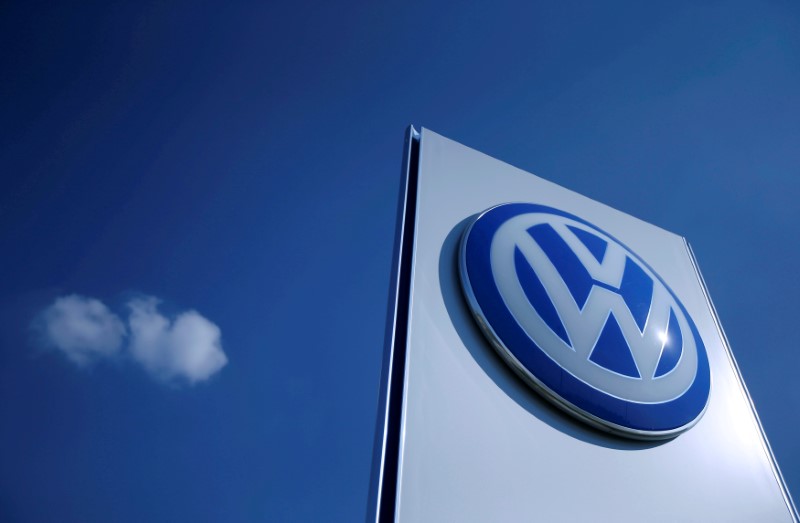By Andreas Cremer and Bernie Woodall
BERLIN/DETROIT (Reuters) - Four of the world's top carmakers have agreed to invest in thousands of fast-charging sites across Europe to boost mainstream acceptance of electric cars, the companies said on Tuesday.
Spurred by the success of U.S. rival Tesla (O:TSLA), which has received huge pre-orders for its Model 3 car, German rivals Volkswagen (DE:VOWG_p), Daimler's (DE:DAIGn) Mercedes, BMW (DE:BMWG) an Ford Motor Co's (N:F) European division have entered a joint venture to develop 400 charging stations.
Overcoming "range anxiety," the fear of running out of power before reaching a charging station, is key to widespread consumer acceptance of electric vehicles, which so far have filled only a niche market.
Figures on the total investment were not released.
A memorandum of understanding for the JV was reached late last week, a Ford spokeswoman said.
Scarce charging points, as well as higher prices for electric cars compared with combustion models, stifle mass-market demand despite sales incentives that often include government assistance.
"The availability of high-power stations allows long-distance electric mobility for the first time and will convince more and more customers to opt for an electric vehicle," Daimler Chief Executive Dieter Zetsche said.
A goal is to make charging an electric vehicle as convenient as refuelling at conventional gas stations, the automakers said in a statement issued on Tuesday.
Executives across the industry predict electric cars will become increasingly popular thanks to advances that make batteries cheaper and more powerful. Also, the VW emissions scandal has sparked a regulatory backlash against diesel-engine vehicles.
Diesel-powered vehicles accounted for 52 percent of new passenger cars sold in Europe last year, although they are a small fragment of the U.S. market.
The joint venture, which is open to other automakers, is to fund the establishment of charging sites beginning in the first quarter of 2017, the carmakers said.
After reaching the initial goal of about 400 charging sites along major highways in Europe, the group aims, to have "thousands of high-powered charging points" on the continent by 2020, the statement said.
The JV is to include Volkswagen's Audi and Porsche brands.
A Ford spokeswoman in the United States, Angie Kozleski, said the JV is in discussions with power generation providers but is not ready to announce which company or companies will supply electricity to the charging stations.
The initial focus of the JV, Ford's Kozleski said, "will be building the network in Europe and the joint venture will decide on possible expansion, based on market insights, when it is appropriate.”
She would not comment on Ford or other automakers' efforts to develop charging networks in the United States or Asia.
In September, ChargePoint Inc, the world's largest electric vehicle charging network, said the U.S. divisions of Volkswagen and BMW are collaborating on charging networks on the two U.S. coasts.

The European network will be based on so-called combined charging system technology, enhancing existing AC and DC charging standards and allowing for ultra-fast power levels of up to 350 kilowatt-hours.